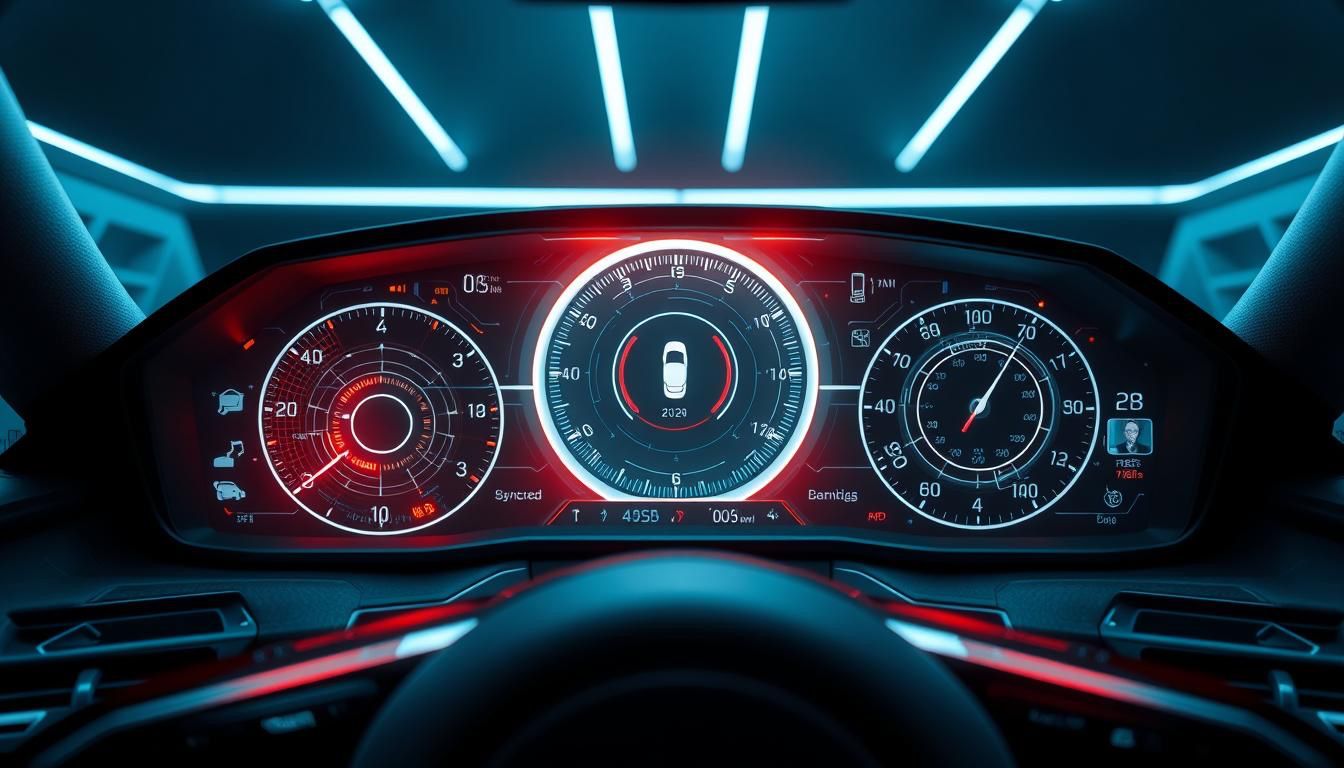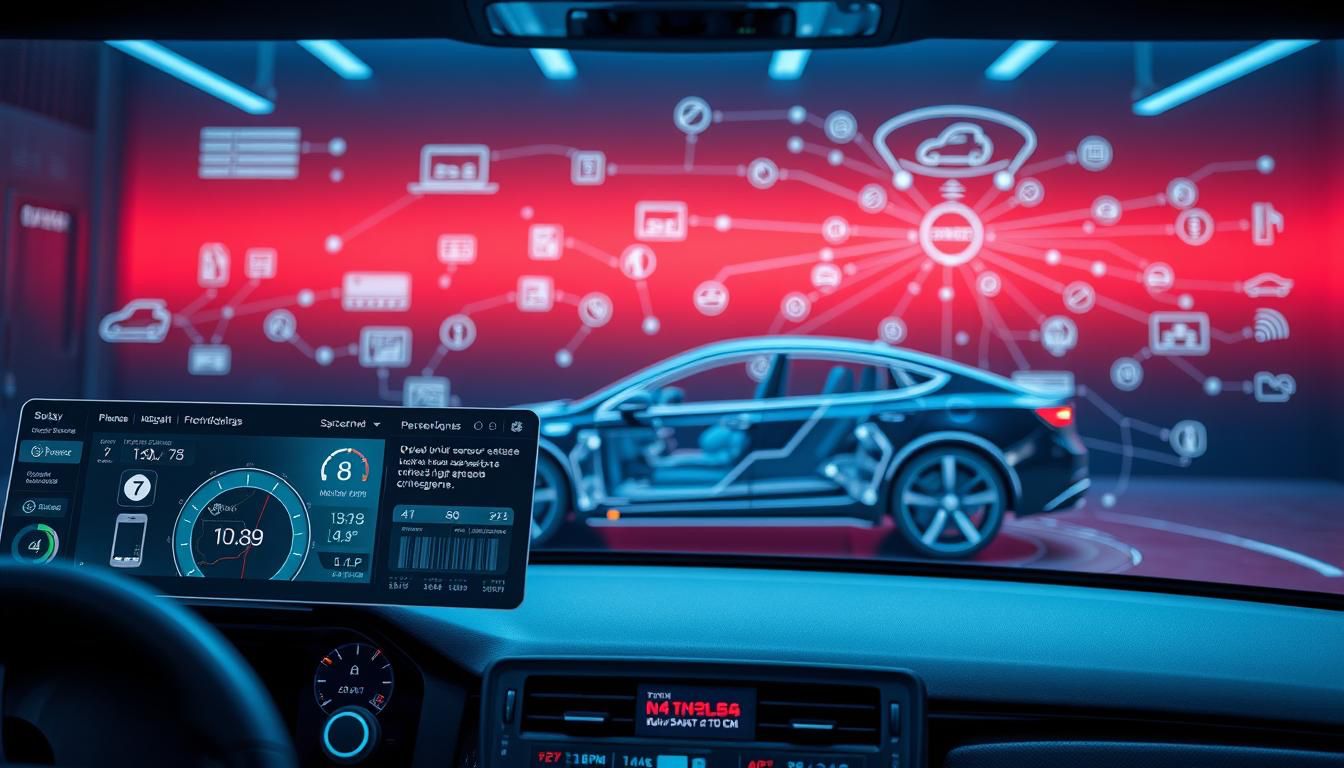Unlock the Power of Automotive Data Integration

Did you know nearly 140 million vehicle repair events happen every year? This shows how big the chance is for automotive data integration to change vehicle services and customer experiences.
In today's competitive car world, connected car data and vehicle telematics are changing how companies understand and serve their customers. CarsXE offers advanced specs to help businesses use these insights, turning data into strategic advantages.
Automotive data integration is more than just numbers. It's about making smart systems that guess what customers need, improve operations, and boost efficiency in the car world.
Key Takeaways
- Vehicle data can transform customer service strategies
- Connected car technologies provide comprehensive insights
- AI-driven recommendations enhance automotive operations
- Predictive maintenance reduces unexpected service interruptions
- Data integration enables more personalized customer experiences
The Evolution of Connected Vehicle Data Systems
The car industry is changing fast thanks to connected vehicle tech. Digital links are making cars smarter, letting them talk to each other and share data. This brings better experiences for drivers.
Enhancing automotive system integration for software defined vehicles
Today, cars are getting more data-driven. By 2030, almost all new cars will be connected. This big change is making cars smarter and more valuable.
Real-time Vehicle Telemetry and Data Collection
Connected cars make a lot of data with advanced systems. This includes:
- Constant checks on how well the car is running
- Instant updates on car health
- Help in planning when to fix things before they break
- Stronger security to keep cars safe
Fleet management systems are getting a lot from these new techs. By 2024, there will be 340 million connected cars, growing by 27% each year.
Cloud-Based Architecture for Automotive Data
Data Aspect:
Daily Data Processing
Connected Vehicle Projection
Potential Annual Value
Key Metrics:
1-2 terabytes per connected vehicle
95% of new vehicles by 2030
$250-$400 billion by 2030
Cloud tech makes it easy to share and use car data. The future of cars is about smart, connected systems that focus on safety, efficiency, and fun.
Automotive Data Integration: Driving Customer Experience Excellence

The automotive industry is changing fast thanks to smart data integration. Now, your customer experience relies on advanced technologies. These technologies turn simple data into tailored services.
Predictive vehicle maintenance is a big deal for car businesses. With automotive cloud computing, dealerships can spot problems before they happen. This leads to better service experiences and happier customers.
"Data integration is no longer a luxury—it's a strategic necessity for automotive businesses seeking to deliver exceptional customer experiences."
Advanced automotive data integration brings many benefits:
- Real-time vehicle performance monitoring
- Personalized service recommendations
- Streamlined communication between vehicles and service centers
- Enhanced predictive maintenance capabilities
Vehicular ad-hoc networks are changing how cars talk to each other. They share data instantly, making cars smarter and more responsive. Your customers expect seamless, data-driven interactions that meet their needs and offer custom solutions.
The future of car customer service is all about smart data integration. It turns complex data into useful, personalized services that go beyond what customers expect.
Conclusion
The automotive industry is at a turning point. Intelligent transportation systems are changing how businesses work and connect with customers. By using data well, you can find new ways to grow and innovate.
McKinsey says that services tied to cars could boost OEM revenue by up to 30% in ten years. This shows the big potential in the future.
Real-time data is key to success in the car world. Connected cars produce a lot of data, up to 25 gigabytes an hour. This data can help improve how you run your business and serve your customers.
The global market for car data management is expected to hit $14.29 billion by 2032. It will grow at a rate of 20.63% each year.
Using data smartly can give you an edge in the car industry. Technologies like Industrial IoT, AI, and cloud platforms help with maintenance and solving problems. They make your business more efficient and customer-focused.
The future of cars depends on turning data into useful information. Intelligent transportation systemsare a big change in the car world. Your focus on data will shape your success in this fast-changing market.
FAQ
What is automotive data integration?
Automotive data integration collects and analyzes data from vehicles. It improves efficiency and decision-making. It uses data from in-vehicle networks, telematics, and cloud platforms.
How does connected vehicle data improve business operations?
Connected vehicle data lets businesses monitor vehicle health in real-time. It predicts maintenance needs and improves fleet management. This leads to better efficiency and customer satisfaction.
What role does cybersecurity play in automotive data integration?
Cybersecurity protects vehicle and customer data from breaches. It keeps information safe and secure. This builds trust and safety for everyone involved.
How can automotive data integration enhance customer experience?
It offers personalized services and predictive maintenance. This creates a better customer journey. Technologies like vehicular ad-hoc networks make service more efficient.
What are the financial benefits of automotive data integration?
It can lead to more revenue through services and efficiency. McKinsey says it boosts customer retention too. It helps businesses stay ahead in the market.
What technologies are involved in automotive data integration?
It uses telematics, cloud computing, and in-vehicle networks. Cybersecurity, predictive analytics, and intelligent transportation systems are also key. These technologies help analyze and improve service capabilities.
How do cloud-based architectures support automotive data integration?
Cloud-based systems offer scalable and secure data storage. They enable real-time data collection and advanced analytics. For example, BMW Group uses AWS for automotive data management.
Take your automotive journey to the next level and visit CarsXE.com today! https://api.carsxe.com/